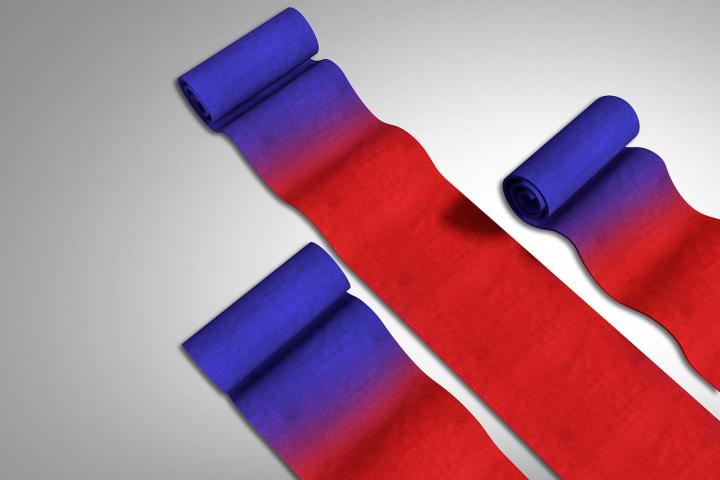
Facebook is working on a special, custom-built app Facebook exclusively for celebrities, according to AllThingsD. It allows stars (and their PR teams) to see what kind of Facebook content is being created around them, like what fans (or non-fans) are saying about them and the various other conversations their fame is creating.
“From here, stars can quickly respond to fans on the fly, and can become a part of the conversation,” Mike Isaac writes for AllThingsD. “The idea: If a star pushed out a status update to fans that caused a rather large amount of chatter – like say, Kobe Bryant’s late-night torrent of scattered thoughts from a few months ago – the new app would make it easier to see the swirling commentary from fans, and mix it up with them.”
… Facebook is trying to reverse engineer a trend that happened organically on Twitter … working against its own strengths as a social network.
This news comes less than a week after we heard that Facebook would be adopting some very Twitter-like elements in the hope of bagging more celeb users and getting them to start sharing publicly.
I get it, Facebook: You want to get celebrities talking like they do on Twitter. You want brands to seek out famous faces on Facebook and start looking into promotional deals, like they do on Twitter. And you want fans obsessively watching their feeds and talking to them, like they do on Twitter. I get all of that; it’s just good business.
But Facebook is trying to reverse engineer a trend that happened organically on Twitter … and working against its own strengths as a social network.
Let them eat cake
It’s no secret that famous Twitter users get free stuff in return for their tweets. It’s simple: Celebs on Twitter have millions of followers because we follow them. Brands ask them to tweet because … well, because millions of us are following them. These freebies are one of the few things that set celeb apart from the rest of us, but Twitter isn’t the one hooking it up, brands are. Besides the coveted Verified badge, we’re all the same to Twitter.
That’s key to the formula. While not all of Twitter’s features are useful for me, they’re all available. I don’t care all that much about Twitter analytics because I don’t have enough followers to really leverage this information. I’m not interested in buying any of Twitter’s Promoted products to get more attention, but if I wanted to I could.

Facebook is taking the opposite approach, intentionally setting up velvet ropes to segregate the haves from the have-nots. Celebs are reportedly being treated to professional photo shoots to help them curate their profiles, along with other “incentives” to get them posting regularly. I must have missed the email from Facebook about what I would receive for posting pictures of my trip to Mexico. I’m still awaiting a call about the Status Update I’ll send from the beer tasting I’m going to next weekend, FB HQ. Tick-tock.
Let’s face it: Society isn’t a level playing field when it comes to the treatment of regular folks and the famous ones. But Twitter, largely speaking, is. And people like it that way.
Almost famous
This level playing field means more than just the availability of Twitter tools. It also means that if you weren’t previously a celebrity, you could become a Twitter celebrity. You don’t hear about the Facebook famous, do you? Twitter lets you adopt a persona, one other than or only loosely tied to your real-life self. Facebook, on the other hand, has been focused on being the source of real, actual identity, and it’s made it a valuable asset for many reasons.
Society isn’t a level playing field when it comes to the treatment of regular folks and the famous ones.
Twitter encourages you to tweet as often as you like. While Facebook doesn’t punish it, its News Feed isn’t going to naturally let your updates float to the top in real-time, and according to research, people aren’t a big fan of your non-stop posting on Facebook anyway.
On Twitter, you can interact with anyone. On Facebook, there are more barriers. On Twitter, you’re public. On Facebook, you have more privacy controls and options. While this means Facebook makes it easier for you to keep what you want private and interact within a smaller social circle, it also means becoming famous off your Facebook persona is difficult. Meanwhile, Twitter has given rise to many an Internet celebrity. If you use social media, it’s becoming commonly accepted that it’s because you want some modicum of attention. Twitter is for the most attention-seeking of us all. It’s an Internet celeb hopeful’s dream.
You are what you are

By courting VIP members so hard, Facebook isn’t playing to its strengths. That’s Twitter’s job, and it’s simultaneously useful, annoying and sort of shallow for it. Twitter has always been about shouting the loudest in a giant room trying to get everyone – anyone – to notice us. Facebook has been about connecting digitally with your real world, and the main complaint lately has been that we’re seeing less and less from the people we care about in our lives. This is something Twitter is bad at, and where Facebook could step in and raise the bar with a better feed algorithm and improvements to search.
We already have a Twitter, we don’t need another one.
Top image courtesy of Gualtiero Boffi/Shutterstock


